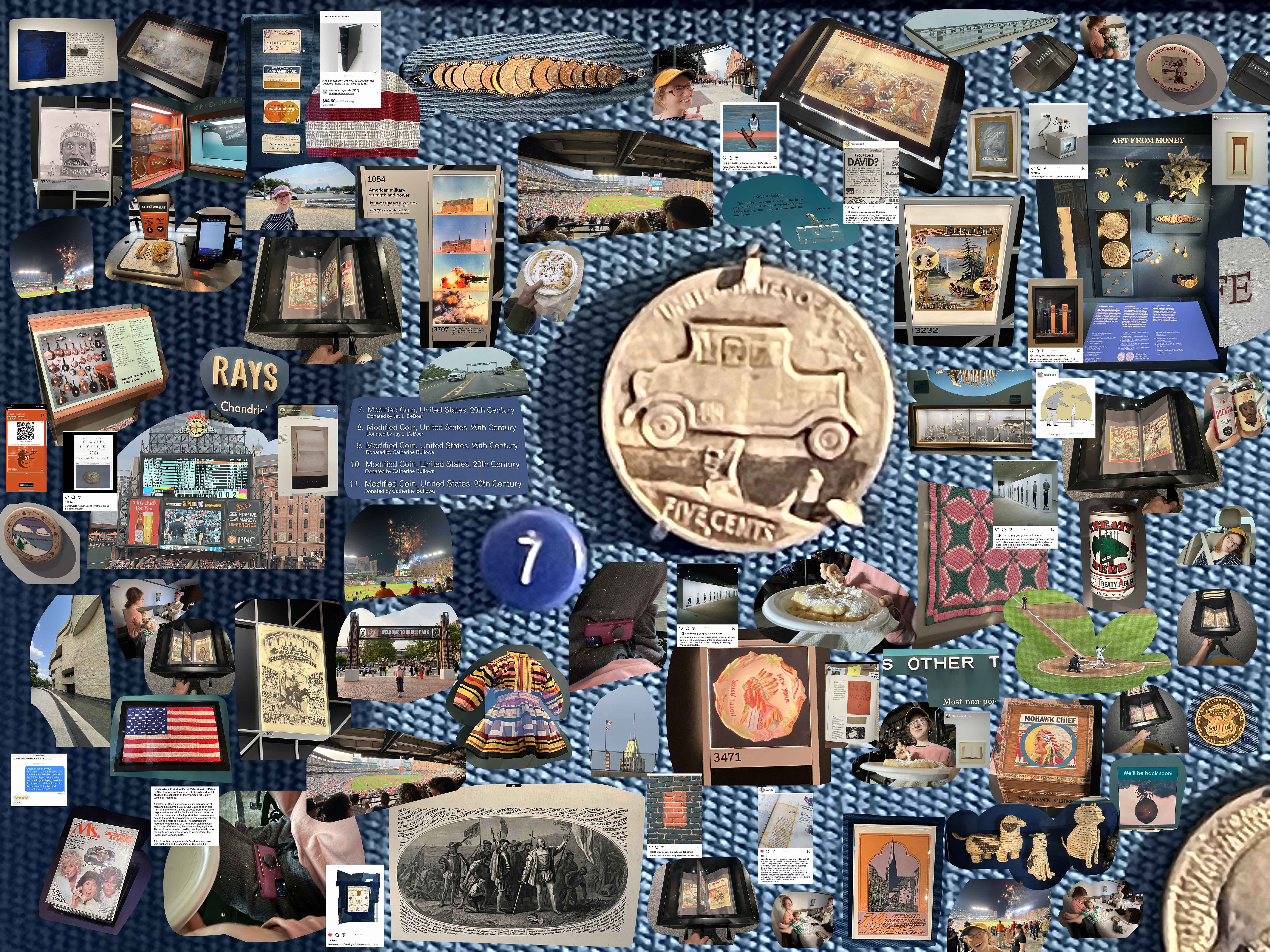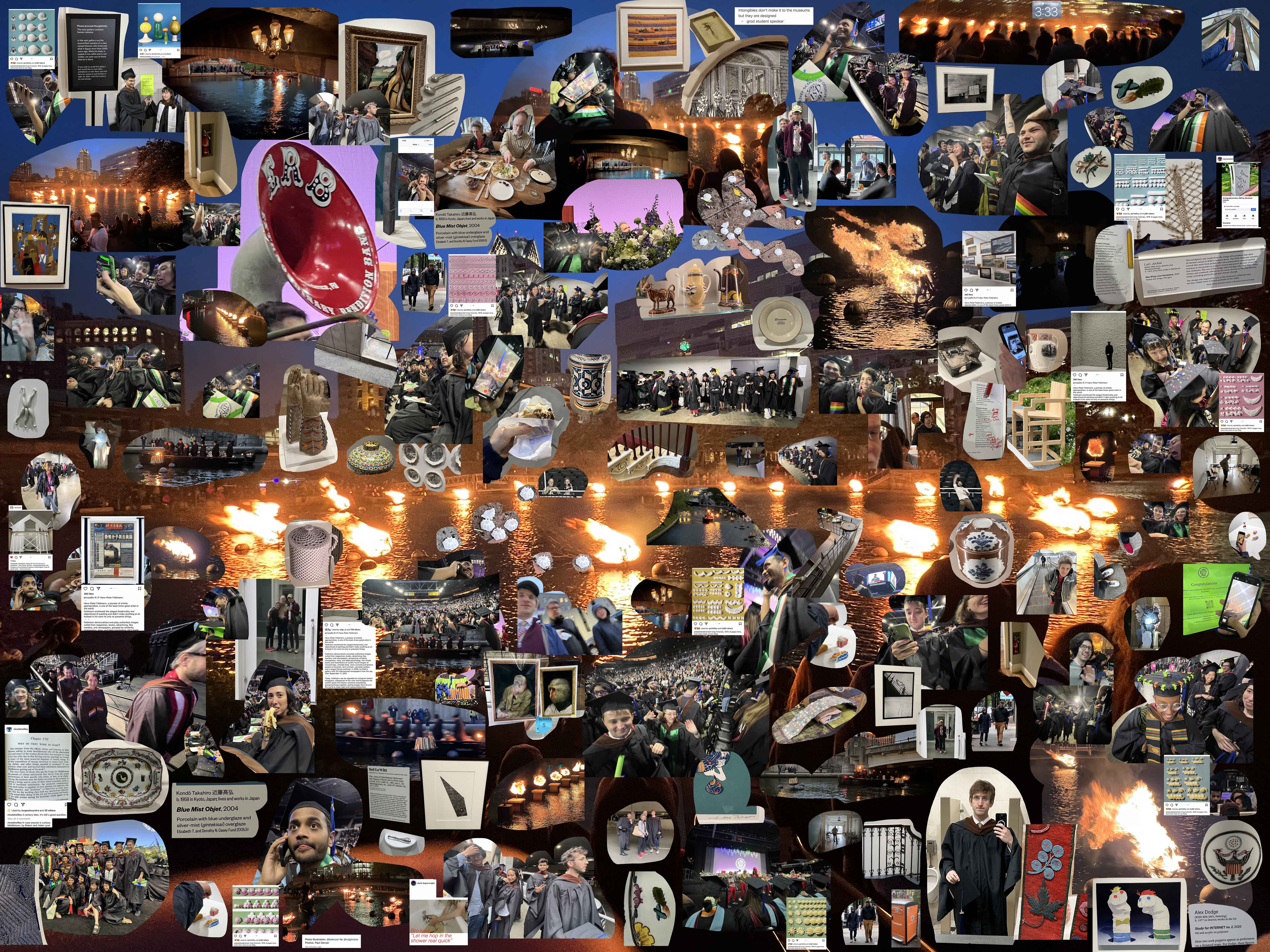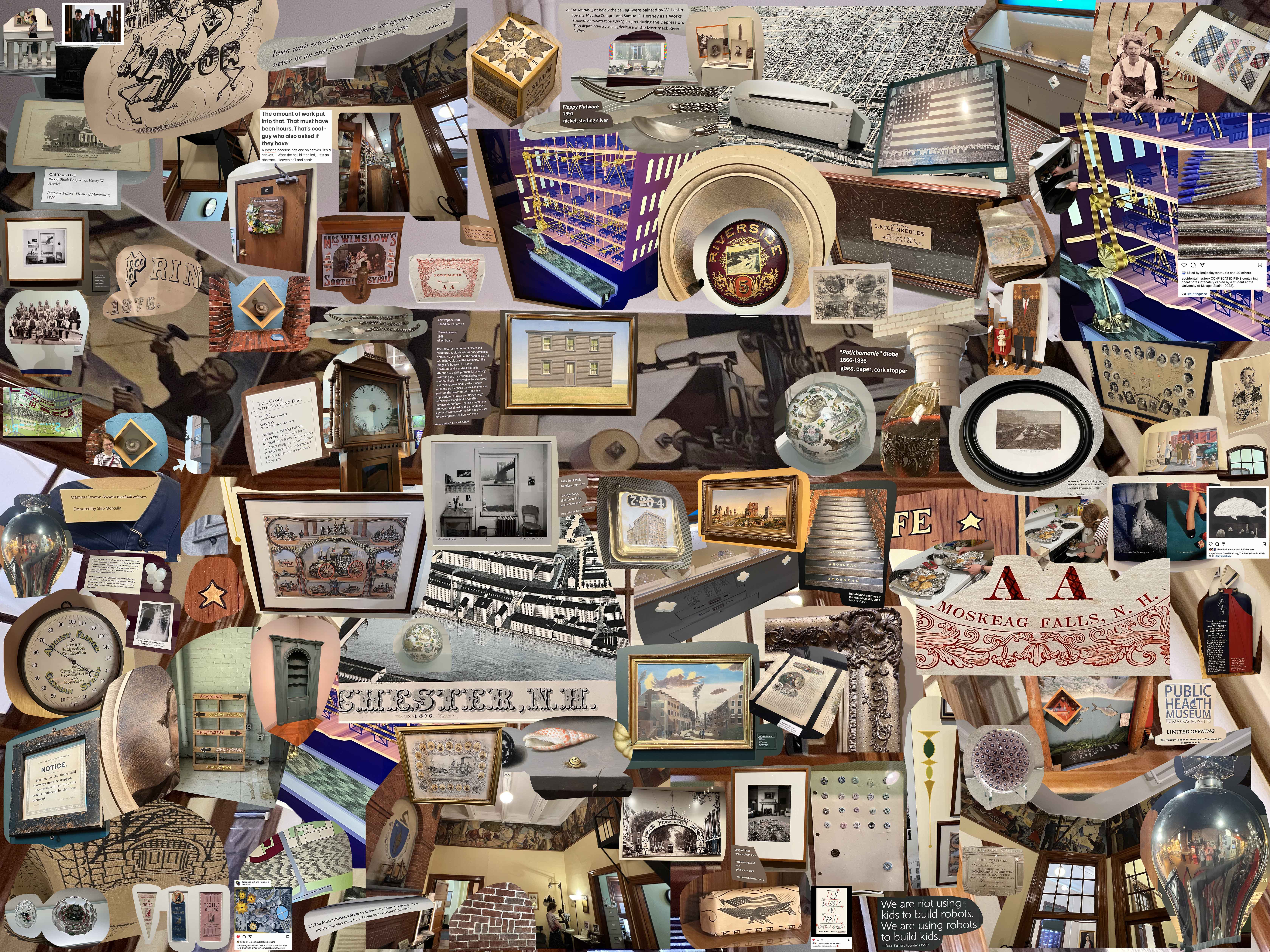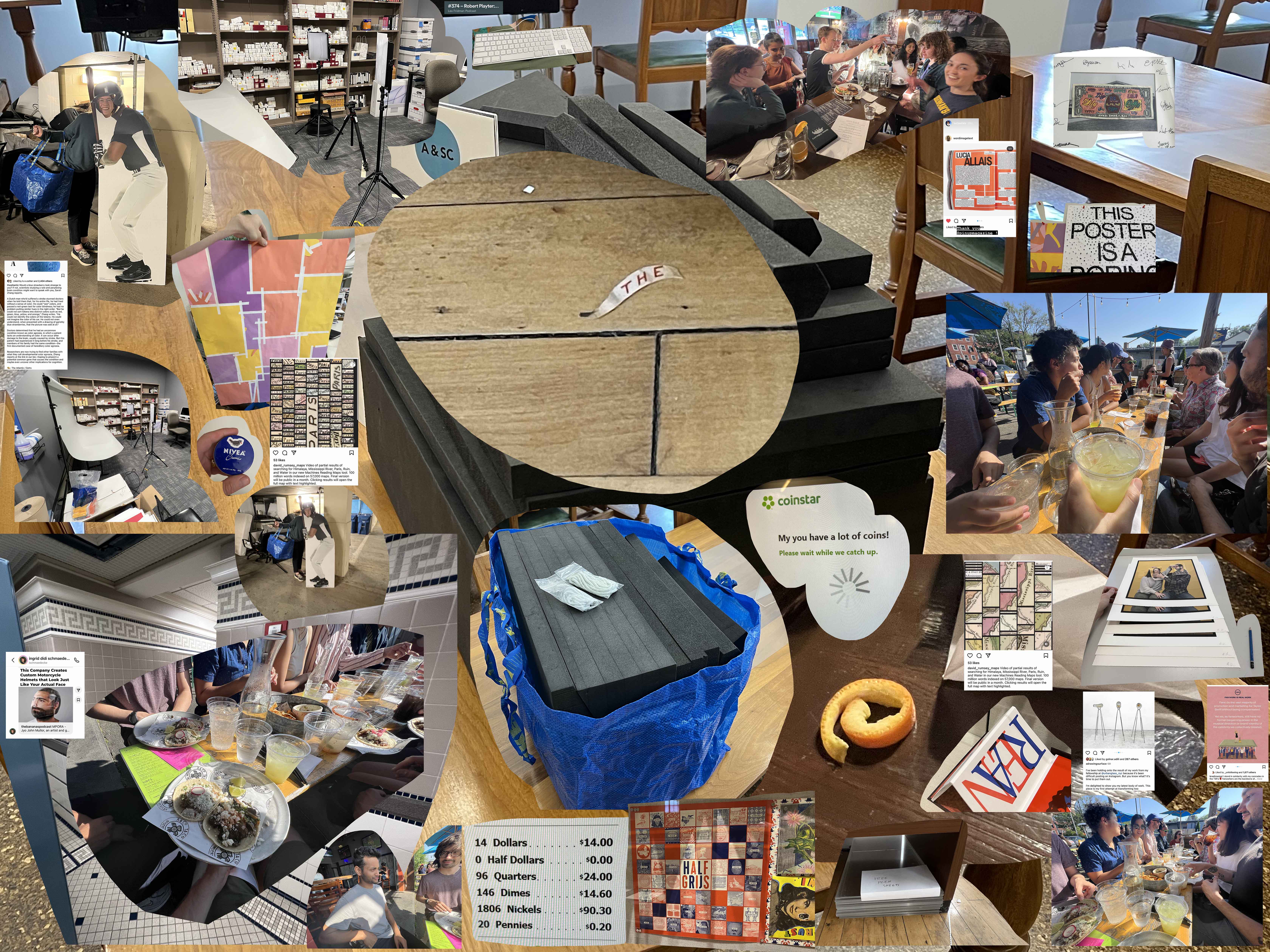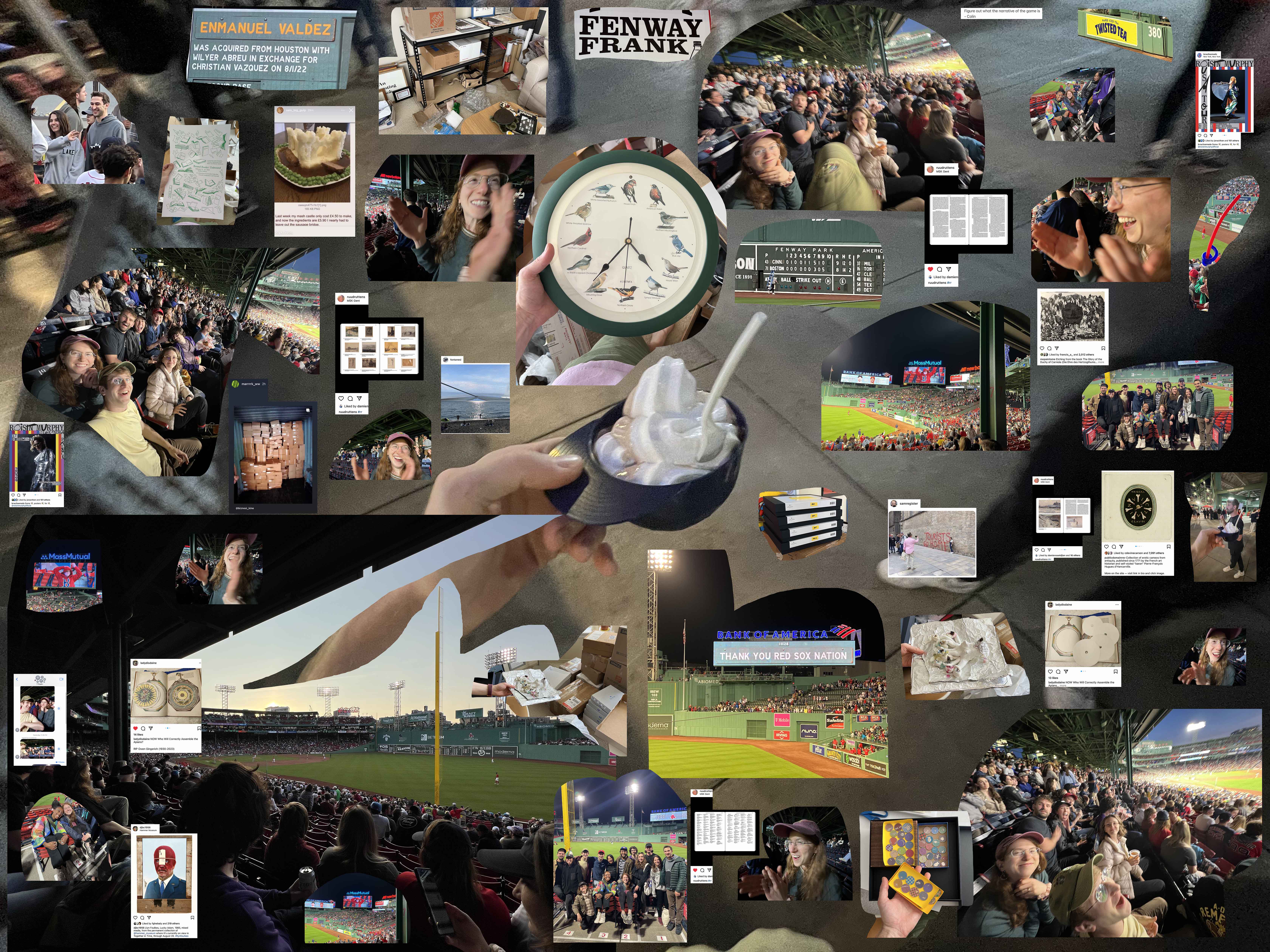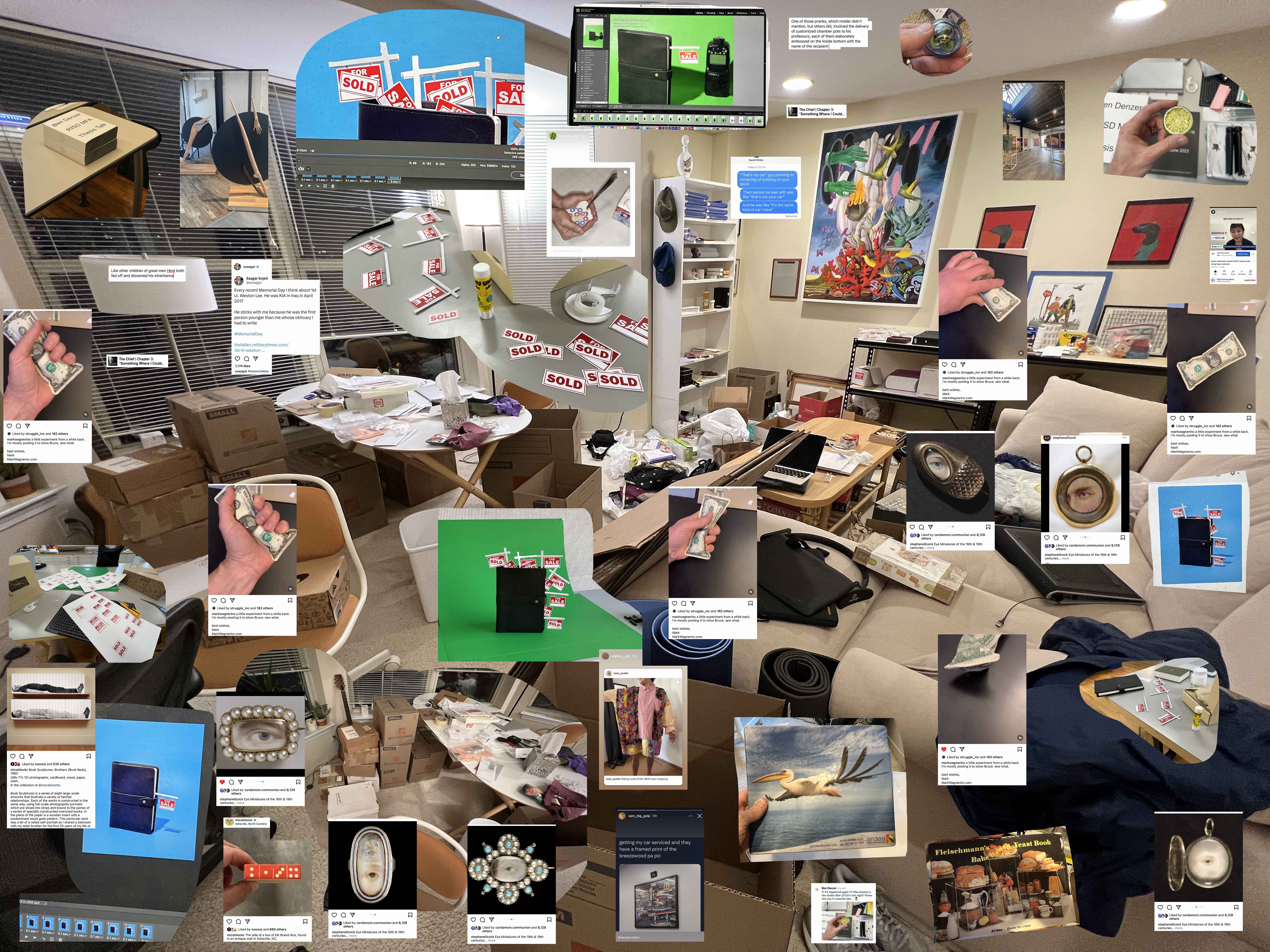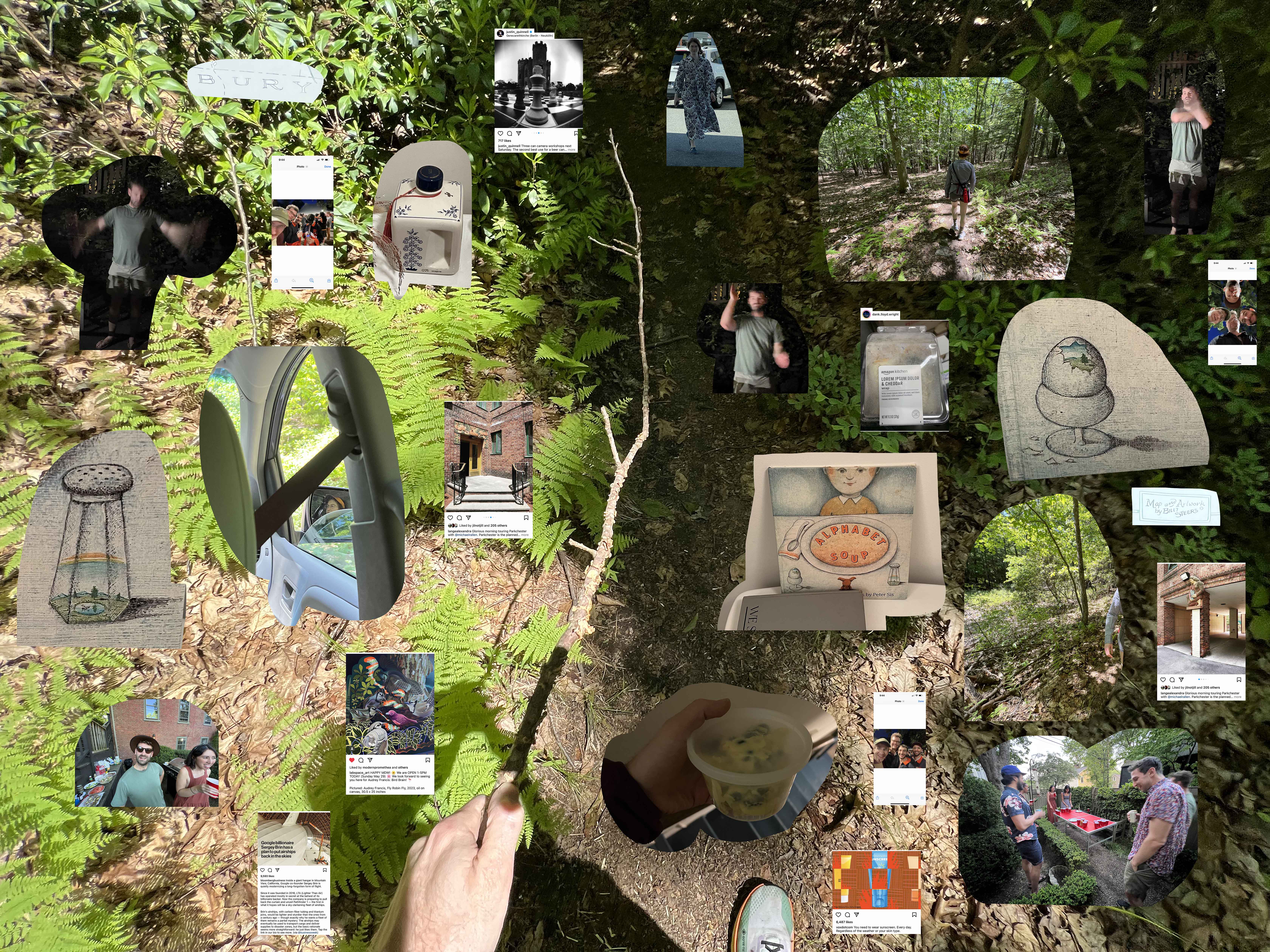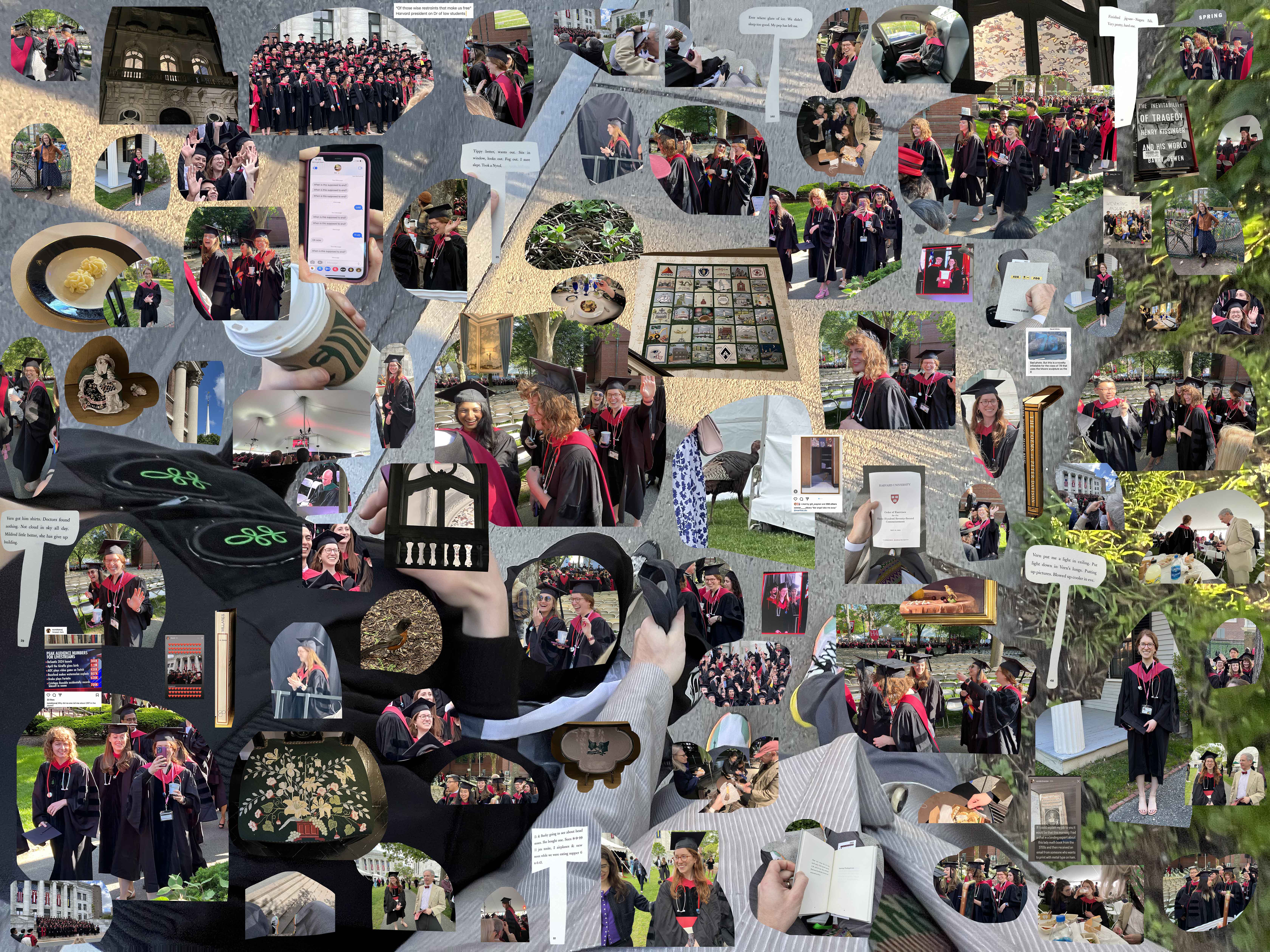Tuesday, June 13, 2023
Before aerial bombs and synchronized machine guns were perfected, aviators had few weapons which could harass the enemy on the ground. One weapon occasionally used was darts. They were most effective if dropped in small quantities from about 1,000 feet by the observer in observation airplanes. Dropped over a column on the road or trenches, the darts were noiseless and did not warn those on the ground to take cover. The idea was revived during the Korean War with slightly heavier darts for use against enemy motorized convoys and troop concentrations. They were dropped in very large quantities from bombers at great height, and had enough energy to crack an engine block.
— Item description, "French Dart, World War I," West Point Museum
Monday, June 12, 2023
I feel like I'm inside of a snow globe that's inside of a closet.
— Lily
Sunday, June 11, 2023
The measure of a commercially successful newspaper is not simply how well it reports the big events, but what it does when there are no dying statesmen, bloodthirsty desperadoes, or heinous crimes to write about. Hearst succeeded in New York not only because he knew how to report the big stories, but because he was a master at constructing news from nothing. News is not a phenomenon that exists in the real world, waiting to be discovered. Wars have been fought, tornadoes have raged, and hundreds of thousands of innocents have been slaughtered without ever becoming “news.” An event becomes news only when journalists and editors decide to record it. More often than not, what determines whether an occurrence is newsworthy or not is the ease with which it can be plotted and narrated so that readers will want to read about it.
— David Nasaw, The Chief: The Life of William Randolph Hearst
Saturday, June 10, 2023
You may not win the race, but you'll always be my horse.
— Morris saying a Buck Offit quote
Friday, June 9, 2023
A Portrait of David consists of 75 life-size photos of men and boys named David. One David of each age from one to age 75 was selected from those who responded to my call for Davids which was placed in the local newspapers.
— @micahlexier
Thursday, June 8, 2023
For years, I've been collecting the dust on buildings as a historic record of the atmosphere. Preservationists typically throw out this dust layer as "insignificant". Yesterday we collected some of the dust directly from the air at the Preservation Technology Lab @columbiagsapp @columbia.
— @oteropailosstudio
Wednesday, June 7, 2023
It was never easy to tell where reporting ended and fiction began. As Michael Robertson, the author of Stephen Crane, Journalism, and the Making of Modern American Literature, observes, this mingling of genres was common to "journalistic discourse at the turn of the century... Newspaper reporters and readers of the 1890s were much less concerned with distinguishing among fact-based reporting, opinion, and literature," The cult of objectivity which would define journalistic standards—if not always journalistic practices—later in the twentieth century was not yet in place. What readers expected of their newspapers was not literal, but figurative truth. They wanted a map of the city with the "feel" of events, the "sense" of being there.
— David Nasaw, The Chief: The Life of William Randolph Hearst
Tuesday, June 6, 2023
“Your mom is getting old,” I said to my wife. “When you’re FaceTiming with her, would you rather see her deepfake digital avatar, or a crummier video call where she’s holding the phone camera up to her face at an unflattering angle?”
“The latter,” she said without hesitation. “That’s real."
— Brian X. Chen, "A First Try of Apple’s $3,500 Vision Pro Headset," The New York Times
Monday, June 5, 2023
At least one witness has stated that Tank Man was not the only person to have blocked the tanks during the protest, but Tank Man is unique in that he is the only one who was photographed and recorded on video.
— "Tank Man," Wikipedia
Sunday, June 4, 2023
I ordered more becuase I need them right away.
— Emily on ordering more ladybugs*
Saturday, June 3, 2023
Intangibles don't make it to the museums but they are designed.
— Diana Sanchez, Graduate Student Speaker, RISD Commencement
Friday, June 2, 2023
Seeing art in a museum and seeing it in an auction house are diametrically opposed. In a museum, the commerce of art is backgrounded; in an auction house, monetary value is almost all there is. Museums are great memory machines. They add to art history, they build on themselves. Auction houses discourage the contemplation of time’s passage. They want you to think only about here, now, how much.
— Jerry Saltz, "Requiem for a Museum," New York Magazine
Thursday, June 1, 2023
The amount of work put into that. That must have been hours. That's cool.
— Guy in Currier Museum of Art
Wednesday, May 31, 2023
Video of partial results of searching for Himalaya, Mississippi River, Paris, Ruin, and Water in our new Machines Reading Maps tool. 100 million words indexed on 57,000 maps. Final version will be public in a month. Clicking results will open the full map with text highlighted.
— @david_rumsey_maps
Tuesday, May 30, 2023
Figure out what the narrative of the game is.
— Colin*
Monday, May 29, 2023
Every recent Memorial Day I think about 1st Lt. Weston Lee. He was KIA in Iraq in April 2017
He sticks with me because he was the first person younger than me whose obituary I had to write
— @esaagar
Sunday, May 28, 2023
Custard tart
— Dessert Jenna made
Saturday, May 27, 2023
A former colleague of mine, the writer Henry Mitchell, once wrote, “The only thing I know about prizes is that Mozart never won one.”
— Roger Rosenblatt, "What’s the Point of Prizes?," The New York Times
Friday, May 26, 2023
Information is received in inverse proportion to its predictability.
— Mike Ford, "258: Leaving the Fold," This American Life
Thursday, May 25, 2023
Of those wise restraints that make us free.
— Harvard president to new class of Law School graduates




